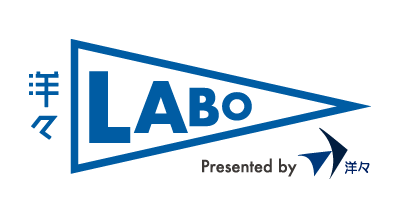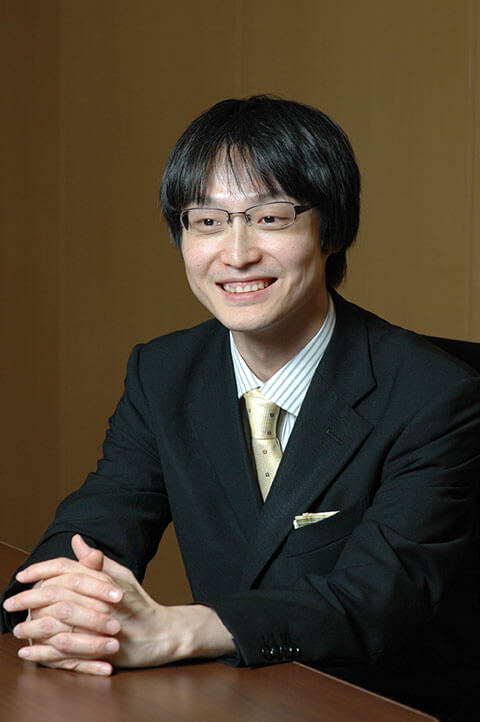入学試験概要
こちらのページでは、早稲田大学政治経済学部(School of Political Science and Economics, SPSE)の英語学位プログラム(English Based Degree Program, EDP)の入試概要と対策の方法について紹介します。
早稲田大学政治経済学部の英語学位プログラム(EDP)とは?
早稲田大学政治経済学部は、2010年9月に英語学位プログラム(以下、政経EDP)をスタートさせました。政治経済学部は毎年800人ほど日本語を母語とする学生を受け入れる一方、EDPにおいてはおよそ100人の学生を受け入れています。
政治経済学部では政治学や経済学に加えて文化や哲学、宗教などの一般教養を広く学べるほか、現代社会で広く求められる統計学やデータ分析などの知識を身につけることが出来ます。EDPの学生は英語で行われる授業や演習科目を主に履修しますが、同学部では多くの授業が日英の両言語で提供されているため、日英バイリンガルのEDP学生であれば日本語での授業を履修し、科目の理解を深めることが可能です。
政治経済学部は早稲田大学の看板学部ともいえる存在であり、特にEDPの教員は欧米の名門大学での研究・教授歴を有しています。
出願の時期・内容について
政経EDPの入学時期は毎年9月に設定されています。選考プロセスは志望理由書やSAT・IBなどの統一試験スコア、TOEFL・IELTSなどの英語資格スコアを含む書類選考からなり、大学側から指定があった受験生のみが面接試験を受ける形となります。
政治経済学部には政治学科、経済学科、国際政治経済学科の3つの学科(註:募集要項ではDepartmentではなくDegreeと表記されています)があり、政経EDPの受験者はこれらから1つを選択し、卒業時にはそれぞれB.A. in Political Science、B.A. in Economics、B.A. in Global Political Economyを授与されます。3学科で合計100人の募集となり、学科毎の人数の上限は設けられていません。
政経EDPの公式ページによると、2021~2023年度に合格した受験生の統一試験スコア平均値は以下の通りです。
(https://www.waseda.jp/fpse/pse/en/applicants/admissions/)
・SAT 1441.3
・ACT 32.1
・IBDP 38.2/42
また、受験者数および合格者数の内訳は以下の通りです(同じく公式HPより)。
| 年度 | 受験者数 | 合格者数 | 倍率 |
|---|---|---|---|
| 2021 | 444 | 180 | 2.5 |
| 2022 | 458 | 191 | 2.4 |
| 2023 | 417 | 260 | 1.6 |
出願に必要な書類および筆記試験の対策について
提出書類のうち、以下のものは特に入念な準備を行う必要があります。
志望理由書
志望理由書は1000語ほどの英文エッセイで、直近の募集要項では、以下のお題が設定されています(2024年9月入学者向け募集要項より引用)。
Write an essay of around 1000 words that explains why you want to study at the School of Political Science and Economics at Waseda University. In particular, describe the reasons for your selected degree (political science, economics, or global political economy) and your plans for using what you learn in the future. Your essay should reflect your own personal perspectives and experiences.
以上を分解すると、志望理由書では主に以下の4点に触れる必要があります。
・なぜ政経EDPで学びたいのか
・自分が選択した学科を志す理由
・政経EDPでの学びをどう将来に活かすか
・これらに関連する自身の価値観や経験
なお、募集要項には太字で”This statement is of particular importance in the document screening process(このエッセイは書類選考における重要な資料となります)”とあるため、統一試験や英語資格のスコアが高くても油断せず、以上の4点について審査担当者に「刺さる」内容のエッセイをしっかりと作成する必要があります。
Standardized Test(統一試験のスコア)
・SAT
・ACT
・国際バカロレアディプロマ(IB)
・CSAT(大韓民国)
・GCE Advanced Level
・普通高等学校招生全国統一考試(中国)
これらのうち1つ以上のスコアを提出します。なお、提出するスコアには数学の点数を含んだものの提出が求められています。数学の点数が無くても出願そのものは可能ですが、他の出願者よりも評価が低くなる可能性があります。またどのテストにおいても大学側から詳細な要件が設けられていますので、大学HPおよび政経EDPの募集要項をご自身でも必ずご確認ください。
英語テストのスコア
以下にある英語能力試験のスコアを1つ以上提出する必要があります。
・TOEFL iBT
・IELTS Academic Module
いずれの試験においても提出書類の作成・送付方法に関して要件が設定されていますので、ご自身でも必ず募集要項をご確認ください。
出願対策にあたって注意すべきこと
英語資格試験のスコアアップは独りでも可能ですが、書類審査を担当する大学教員を唸らせる志望理由書の作成や筆記試験の対策を独りで行うことは難しいですよね。
政経EDPが募集要項で志望理由書を「選考上の重要資料」と指定している以上、志望理由書ではただ質問に答えるだけでなく、以下の要素も併せてしっかりと読み手に伝える必要があります。
・政経EDPで学びたい!という強い熱意
・政経EDPで何を学びたいのか、およびその理由
・政経EDPで学んだことを将来どのように活用するか
・自分の価値観を形作った経験
志望理由書の内容が説得力に欠ける、他の受験生のものに劣る内容だと判断されてしまうと、合格できる確率は大変低くなってしまいます。そのため、自分の過去をしっかりと振り返り、自分が将来何をどうしたいのかを熟考した上で志望理由書を執筆することが大切です。
洋々のサポートについて
洋々では、完全個別指導で、政経EDPの受験を目指す皆さんを強力にバックアップいたします。
洋々のサポートでは受講生1人に対し、大学生講師(メンター)が1人、社会人講師(プロフェッショナル)1人がアサインされます。
授業時間外においても、他の受講生との交流を図れるイベントや、自らの志望理由書を発表するセッションなど、アクティブラーニング(探求型学習)の機会を提供しています。サポートはZoomでも受講が可能ですので、渋谷への移動が難しい場所に住んでいる方でも、問題なく受講ができます。
個別相談では上記を含めた詳しい内容について担当者が説明いたしますので、以下のボタンをクリックして、ぜひご予約下さい!
WASEDA School of Political Science and Economics, English Based Degree Program
This page provides an overview of the School of Political Science and Economics (SPSE) at Waseda University and how you can best prepare for the admission process of the English Degree Program (EDP) offered by the faculty.
What is the English Degree Program (EDP) at the School of Political Science and Economics (SPSE) at Waseda University?
The School of Political Science and Economics at Waseda University started the English Degree Program (hereinafter referred to as EDP) in September 2010. While the School of Political Science and Economics accepts about 800 students who are native Japanese speakers each year, it accepts approximately 100 students in the EDP.
In EDP, students can widely study general education subjects such as politics, economics, culture, philosophy, and religion, as well as acquire knowledge in statistics and data analysis, which are widely demanded in modern society. EDP students mainly take courses and seminars conducted in English, but since many courses are offered in both Japanese and English, bilingual EDP students can also take classes in Japanese to deepen their understanding of the subjects.
The School of Political Science and Economics is considered a flagship department of Waseda University, and particularly, the faculty members of the EDP have extensive research and teaching experience at prestigious universities in Europe and the United States.
Application Period
The admission period for EDP is set for September each year. The selection process consists of document screening, which includes a statement of purpose, standardized test scores such as SAT and IB, and English proficiency test scores such as TOEFL and IELTS. Only applicants who are specified by the university will proceed to the interview stage (not being invited to the interview stage does NOT mean you are destined to get rejected).
Three degrees are available to students: B.A. in Political Science, B.A. in Economics, and B.A. in Global Political Economy. Applicants for EDP must choose one of these degrees at the time of application. A total of 100 students will be admitted across the three degrees, with no set quota for each department.
According to the official page, the average standardized test scores of successful applicants for the 2021-2023 academic years are as follows:
(https://www.waseda.jp/fpse/pse/en/applicants/admissions/)
・SAT: 1441.3
・ACT: 32.1
・IBDP: 38.2/42
Additionally, the breakdown of the number of applicants and successful candidates is as follows (also from the official website):
| Year | The Number of Applicants (A) | Successful Applicants (B) | Competition Ratio (A÷B) |
|---|---|---|---|
| 2021 | 444 | 180 | 2.5 |
| 2022 | 458 | 191 | 2.4 |
| 2023 | 417 | 260 | 1.6 |
Required Documents and Examination for Application
Essay
The Statement of Purpose is an English essay of about 1000 words. According to the latest application guidelines (for September 2024 entry), the prompt is as follows:
Write an essay of around 1000 words that explains why you want to study at the School of Political Science and Economics at Waseda University. In particular, describe the reasons for your selected degree (political science, economics, or global political economy) and your plans for using what you learn in the future. Your essay should reflect your own personal perspectives and experiences.
In other words, your essay needs to address the following four points:
・Why you want to study at EDP
・The reason for choosing your selected degree
・How you plan to use what you learn at EDP in your future
・Your set of values and experiences related to these points
It is noted in bold in the application guidelines: “This statement is of particular importance in the document screening process,” so even if your standardized test or English proficiency scores are high, do not be complacent. You need to carefully craft an essay that will resonate with the reviewers on these four points.
Standardized Test Scores
You must submit at least one of the following:
・SAT
・ACT
・International Baccalaureate Diploma (IB)
・CSAT (Republic of Korea)
・GCE Advanced Level
・Gaokao (China)
Regardless of which test score(s) you submit, mathematics must be included in your examination. Although you could still apply without the scores of mathematics, it could disadvantage your application compared with those who submit the score(s) with mathematics.
Be noted that each test has specific requirements set by the university. Please check the latest information on the university’s website and the EDP admissions guidelines.
English Test Scores
You must submit a score from one of the following English proficiency tests:
・TOEFL iBT
・IELTS Academic Module
There are specifications on how to prepare and send these documents to the school, so please make sure that you personally check the latest application guide.
Important Considerations for Application Preparation
Improving your scores on standardized tests and English proficiency examinations can be done on your own, but it is challenging to prepare a compelling statement of purpose or written exam that will impress the university faculty responsible for document screening by yourself.
Since EDP specifies in the application guidelines that the statement of purpose is a “particularly important document in the selection process,” your essay must not only answer the questions but also effectively convey the following elements to the reader:
・A strong passion for wanting to study at the SPSE EDP
・What you want to learn at the SPSE EDP and why
・How you plan to use what you learn at the SPSE EDP in the future
・Experiences that have shaped your values
If your essay lacks persuasiveness or is deemed inferior to those of other applicants, your chances of being accepted will be very low. Therefore, it is crucial to carefully reflect on your past and thoroughly consider what you want to achieve in the future before writing your statement of purpose.
What Can We (洋々/Youyou) Do for You?
We offer individually customized support sessions that include discussions with instructors. Each student will be assigned one mentor (a university student) and one “professional” instructor to assist them.
Additionally, we host events to deepen your understanding of your chosen topic and to facilitate networking with peers who can provide support. These support sessions and events are accessible online via platforms like Zoom, eliminating the need to travel to Shibuya.
Every instructor will diligently assist you in preparing your application. If you have any questions, please contact us through the form below.
[注意]
当社は、当ウェブサイトに情報を掲載する際には、細心の注意を払っておりますが、これらの情報の正確性および完全性を保証するものではありません。入試に関連する情報は、志望大学・学部のホームページや募集要項などにて、ご自身でも必ずご確認くださいますようお願い致します。また当社は、予告なしにウェブサイト上の情報を変更することがあります。当社ウェブサイトに含まれる情報もしくは内容をご利用になった結果被った直接的または間接的な損失に対し、当社はいかなる責任も負いません。
Although we strive to ensure the authenticity of the information below in a timely manner, please check the faculty’s website, application booklets, and other relevant notifications for the most updated information.The author and publisher disclaim any liability for any consequences, directly or indirectly, related to the use of the information provided in this article.



